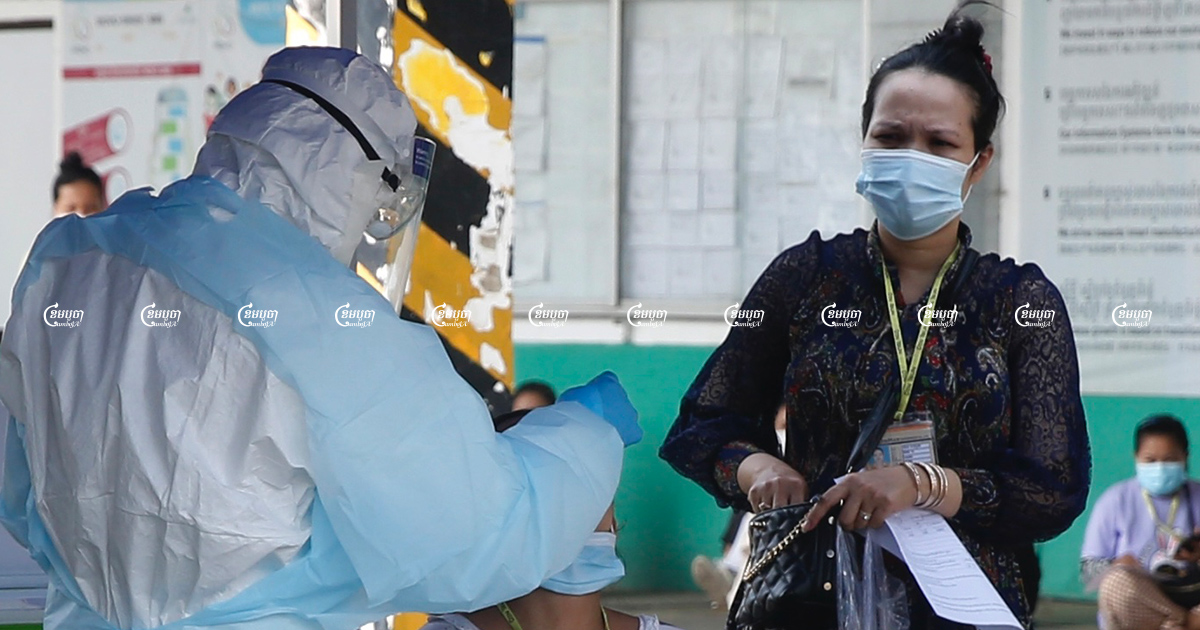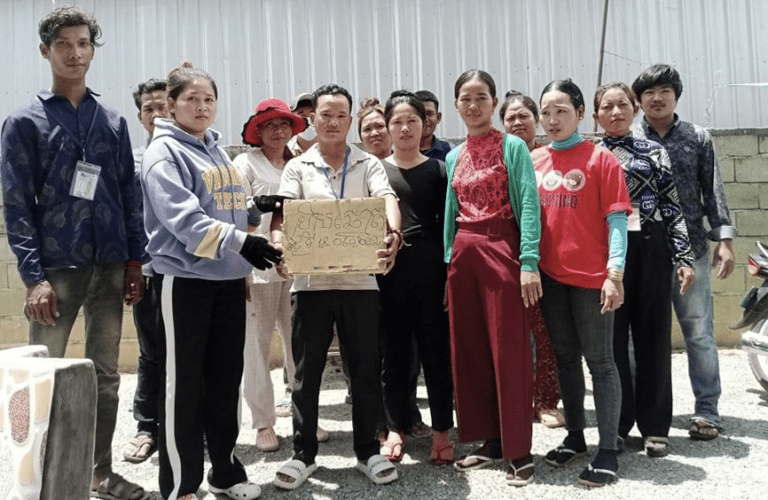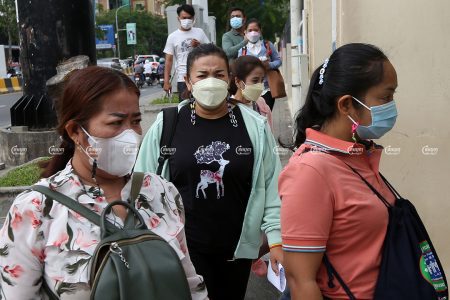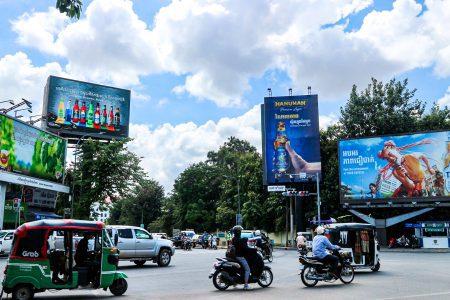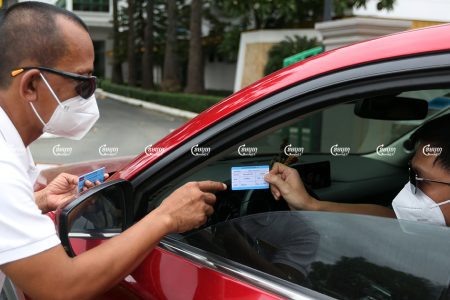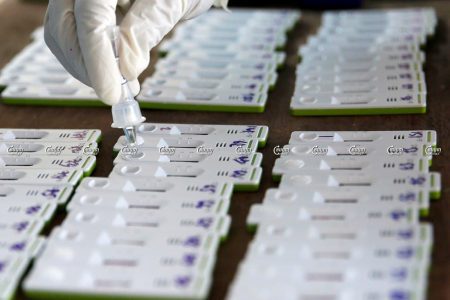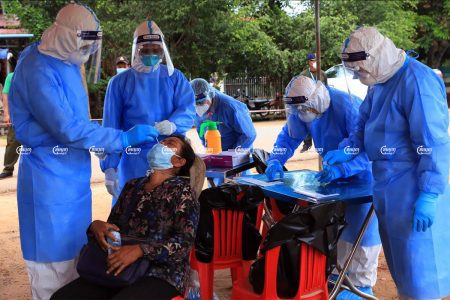Factory employees across the country are now being required to undergo rapid COVID-19 testing before being allowed back to work as a measure to prevent the spread of the more-contagious Delta variant possibly transmitted during the Pchum Ben holiday.
The Ministry of Labor said in a Tuesday statement that factory owners need to provide basic support for the COVID-19 testing process for all their employees. The ministry also stated that employees who refuse to submit to rapid testing may possibly be expelled from their jobs.
“All workers must participate in the COVID-19 rapid test prepared by owners or directors of factories or enterprises,” the statement read. “Any workers who refuse to do a rapid test must be deemed to have violated the rules on security and hygiene discipline as stipulated in article 83 of the Labor Law and existing regulations which allow the employer to dismiss the worker.”
Last Thursday night, the government canceled the 15-day Pchum Ben festival after more than 50 new cases of COVID-19 were found over the course of two days at two Phnom Penh pagodas. However, the government has maintained the three-day Pchum Ben public holiday that will run from October 5-7.
Thy Bopha, 21, is a garment worker in Phnom Penh. Bopha said she will do a rapid test as per the Labour Ministry’s order after she returns from her hometown in Kampong Cham province’s Choeung Prey district.
“I am not scared because I had previously tested three times at my factory because there were some workers in my factory who tested positive for COVID-19 in the past,” she said.
Bopha added that she will go to visit her hometown during Pchum Ben days for three days because she wants to meet with her family and her young daughter, who is just more than a year old.
“I think that I will be safe because I will just go to visit my home,” she said. “I will not go anywhere else, including the pagoda, because the government banned people from going to the pagoda.”
Soy Sopheak, a 21-year-old worker in a photo frame factory in Preah Sihanouk province, told CamboJA her factory has done well in taking measures to protect employees from COVID-19.
She said she has been provided COVID-19 personal protective equipment such as masks and has been given free COVID-19 tests twice per week.
“I am happy that the factory follows the safety guidelines properly. Because during this critical time, we do not know who has the virus or who has not,” said Sopheak.
Cheung Sothea, a factory worker in Kampong Speu province, also reported sound health practices in his workplace, including social distancing measures. However, Sothea is afraid of getting the virus when travelling between home and work, as his transportation vehicle is packed with people.
“There are around 50 to 60 people in the car, so how can we keep our distance? We feel worried about getting the virus,” he said. “But we have no choice since most of us owe money for loans from the bank.”
Mann Seng Hak is the vice president of the Free Trade Union of Workers of the Kingdom of Cambodia. He questioned whether rapid testing would now be required after every holiday, along with the risk of termination for non-compliance.
“I think that it means the government wants to threaten workers indirectly if they do not do a rapid test,” Seng Hak said. “I think that the factories should use temperature-checking machinery and require [workers] to clean with alcohol and wear masks.”
But Yang Sophorn, president of Cambodian Alliance of Trade Union (CATU), told CamboJA she supports this testing measure because it may help stop the spread of the virus in factories as case numbers continue to rise.
“Based on what I have seen so far, some factories have followed high standards of health and safety requirements which is totally good. But still, other factories have yet to adapt to this new normal,” Sophorn said.
To decrease the risk of infection in the factories, she urged all factory owners to strengthen their health guidelines to include free rapid COVID-19 tests and personal protective equipment.
Meanwhile, an industry representative said factories have little choice in the matter but to comply.
Kaing Monika, deputy secretary of the producers group Garment Manufacturers Association of Cambodia (GMAC), said the rapid-testing requirement could add more burden on factory expenses. However, Monika added, employers must follow the Labor Ministry directive.
“The government has made it clear that this is the factory’s responsibility, so we cannot ask for any assistance,” Monika said.
On Tuesday, the Ministry of Health reported 866 new cases of COVID-19, including 83 imported cases. This brought the total count to 110,792, with 18,837 imported cases since the pandemic began in early 2020. The large majority of these cases have been recorded since February 20, when the ongoing community outbreak began in Cambodia. The ministry has also recorded 101,690 recovered cases and 2,287 deaths from the virus.
Neither the Labor Ministry spokesman Heng Sour nor Health Ministry spokeswoman Or Vandine could be reached for comment.


